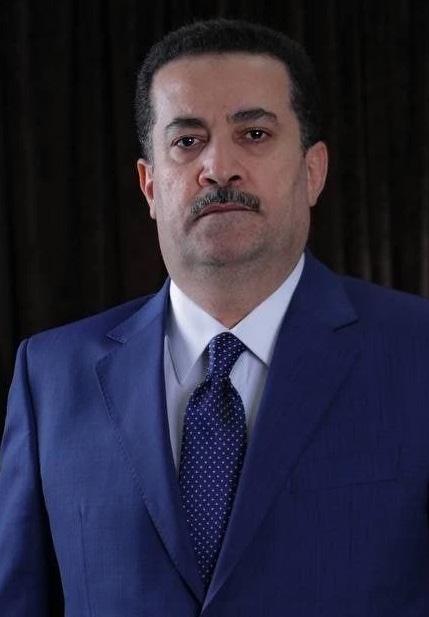
3 minute read
Will Iraq’s New Government Bring About Change?
By Noor Ahmad, Staff Writer
The new Iraqi government, headed by Mohammed Shia’ al-Sudani, was formed in October 2022 and put an end to over a year of political deadlock. The impasse arose as the major bloc of parliamentary seats was won by supporters of Shiite Muslim cleric Muqtada al-Sadr (the Sadrists). They sought to challenge the status quo of the Shia Coordination Framework, a coalition of Shiite organizations representing vested interests, including those led by former Prime Minister Nouri Al Maliki. In fact, al-Sudani is a close associate of Nouri Al-Maliki, who many associate with corruption and mismanagement, and served in his cabinet when he joined national politics in 2010.
Advertisement
The Sadrists, on the other hand, draw their strength from the youth and professional classes – many of them are either unemployed or in insecure forms of employment. Former administrations failed the Sadrist base by not meeting their fundamental needs. In fact, recent data shows that 41 million Iraqis lack access to potable water or electricity, and many feel disillusioned with a corrupt and ineffective political system. The popular demand for an end to corruption manifested itself in an October 2019 protest, known as the Thawrat Tishreen (the October Revolution). Yet, these tensions have persisted, with the Sadrists using opportunities at times to side with the govern- ment and stabilize the system and at others to destabilize it. When al-Sudani was first nominated as prime minister, the militant wing of the Sadrists, Saray al-Salam, occupied the Green Zone in Baghdad and stormed parliament.
Al-Sudani ascended to the premiership against this contentious background, and vowed to root out corruption following longstanding abuse of power. He appears to have had some success –he established The Supreme Anti-Corruption Commission to support the Ministry of Interior in pursuing large scale and high-profile corruption cases; retrieved around $125 million of the stolen tax funds in late November; and rid the government of around 900 compromised officials after six weeks in office. Al-Sudani also outlined ambitious goals of significantly increasing the number of public sector jobs, in an attempt to mirror al-Maliki, who created over 600,000 jobs during his time in office.
While Sudani seems to have admirable objectives for the country, these ideas are not novel, nor are they realistic. His desire to expand public sector jobs is idealistic given that over 60 percent of Iraq’s population is under 25-yearsold, and that around 700,000 people already enter the job market annually, a two thirds increase compared to the Al-Maliki era. The state is already burdened with over-employment and unscrupulous officials create fictitious employees to extract their wag- es from the government.
Moreover, the commission to fight corruption established by al-Sudani is only one in a lineage of those established by his predecessors, for example, Mustafa al-Kadhimi, the former Prime Minister accused of embezzling 2.5 billion tax dollars from Iraqi state coffers, in what is regarded as Iraq’s “heist of the century”, established the Supreme Anti-Corruption Committee. The anti-corruption bodies preceding al-Sudani have been merely symbolic, providing the administrations with much-needed le- a state-financed company to manage government projects, and this is run by an affiliate of the pro-Iran militant group Hashd al-Shaabi. Many believe that the Hashd al-Shaabi want to win contracts in the oil and gas sector, as well as in housing construction. To add credence to this, al-Sudani’s first major overseas visit after securing the premiership was to Iran, where he sought to assuage concerns of the Iranian government on bilateral issues, including security and economic cooperation. The Shia Coordination Framework, which helped elect al-Sudani, is also backed by Iran. gitimacy and sometimes used to attack political opponents of the government. Given al-Sudani’s reliance on the political elite to prop up his government, there is nothing stopping him from following in their footsteps.
Al-Sudani and his government are not only supported by the political elite in Iraq but also by foreign actors. His government set up
Al-Sudani must work quickly to win over the millions of Sadr supporters. This is not just a race to stabilize the economic system, but also a political contest as the Sadrists vie to displace the pro-Iran influence with a Shiite domestic equivalent. The Sadrists have become a major political force over the last decade, doubling their share of parliamentary elections from 2014 to 2018. However, their 2021 choice to break the status quo and ally with Sunni and Kurdish groups to form a government spelled their political downfall. It was their unwillingness to compromise with the Shia Coordinate Framework that ultimately upset their plans. Undoubtedly, they will try again if al-Sudani fails to implement his plans for reforming the state.





